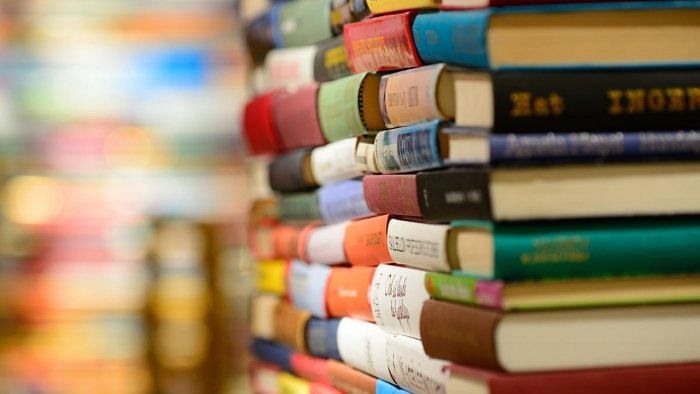
The free library in Philadelphia became my second home when I visited that city in the summer of 2001. I had to walk through a park to reach it. I loved that park with its flowering trees, stone benches and little pathways. What I liked best were the granite chess tables, with their giant-sized bishops, knights and rooks around which sat elderly walkers, idly moving the pawns. I watched them play and occasionally, one of them would ask if I would like to join them.
The library was on the other side of the park. Housed in a stately building in Chestnut Street, its interesting history included “Forgiveness Week” when more than 62,000 overdue books were returned free of fines. Mark Elliott, the assistant librarian, would relate many such out-of-the-ordinary stories as he showed me new treasures each day. Section by section, he introduced me to an array of books on every conceivable subject.
Books on common law, compilations of government documents, albums of orchestral music, collections of Oriental manuscripts and a treasure trove of 15,00,000 rare books which housed ancient clay tablets and medieval manuscripts.
Here, I saw the precious incunabula (books printed before the year 1501) the cuneiform tablets of ancient Europe and the fragile Palmyra leaf scripts of even more ancient India. One day he offered to show me the music library which contained the world’s largest collection of orchestral scores with complete parts. It took my breath away. Music from every country and genre was there at your fingertips. Reggae, worldbeat, neo-traditional, world fusion, Bollywood, Arab swing and African jazz rubbed shoulders with fado, flamenco, gospel and gagaku. There was also Indian music with classical, folk and devotional songs galore.
Finally, there it was, the Indian “raga.” There were recordings listed in various instruments played by India’s iconic musicians, like Ravi Shankar, Zakir Hussein, Balachander and Palghat Raghu, among others. The “Music from Madras” section drew me like a magnet. “Shall I play something for you?” asked Elliott, sensing my excitement. He seated me in a comfortable chair and covered my ears with headphones. I chose my favourite musician and closed my eyes.
Suddenly, Madurai Mani Iyer’s timeless masterpiece filled the Music Room, the Central Library, Logan Square, Chestnut Street and the city of Philadelphia itself with Thyagaraja’s sublime message “Chakkani raja margamulundaaga sandula dooranela O manasaa……”
I felt his voice ring across America itself that day with that abiding lesson from 18th century India. “Liked it?” asked Elliott when it ended. I stared at him, lost for words. Everything around me had blanked out. Only Kharapriya filled the room in all its grandeur, while its composer walked the streets of Tiruvarur with a thambura on his shoulder, singing his timeless songs for the world to hear.